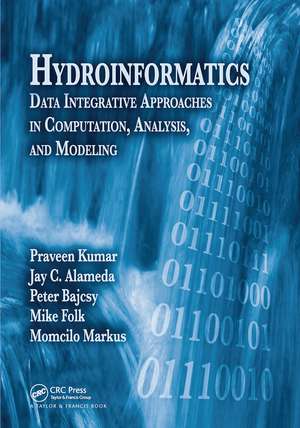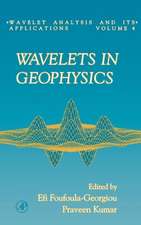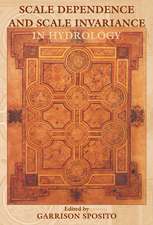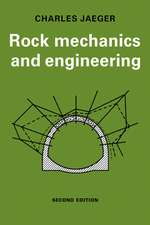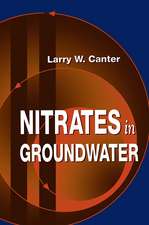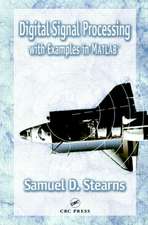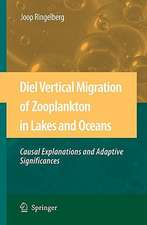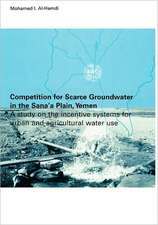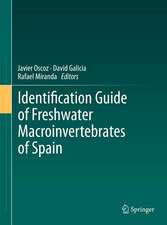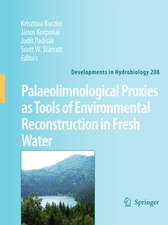Hydroinformatics: Data Integrative Approaches in Computation, Analysis, and Modeling
Autor Praveen Kumar, Mike Folk, Momcilo Markus, Jay C. Alamedaen Limba Engleză Paperback – 7 ian 2019
Linking hydrological science with computer engineering, networking, and database science, this book lays a pedagogical foundation in the concepts underlying developments in hydroinformatics. It begins with an introduction to data representation through Unified Modeling Language (UML), followed by digital libraries, metadata, the basics of data models, and Modelshed, a new hydrological data model. Building on this platform, the book discusses integrating and managing diverse data in large datasets, data communication issues such as XML and Grid computing, the basic principles of data processing and analysis including feature extraction and spatial registration, and modern methods of soft computing such as neural networks and genetic algorithms.
Today, hydrological data are increasingly rich, complex, and multidimensional. Providing a thorough compendium of techniques and methodologies, Hydroinformatics: Data Integrative Approaches in Computation, Analysis, and Modeling is the first reference to supply the tools necessary to confront these challenges successfully.
| Toate formatele și edițiile | Preț | Express |
|---|---|---|
| Paperback (1) | 557.91 lei 6-8 săpt. | |
| CRC Press – 7 ian 2019 | 557.91 lei 6-8 săpt. | |
| Hardback (1) | 1569.29 lei 6-8 săpt. | |
| CRC Press – 2 noi 2005 | 1569.29 lei 6-8 săpt. |
Preț: 557.91 lei
Preț vechi: 656.37 lei
-15% Nou
Puncte Express: 837
Preț estimativ în valută:
106.75€ • 111.47$ • 88.15£
106.75€ • 111.47$ • 88.15£
Carte tipărită la comandă
Livrare economică 15-29 aprilie
Preluare comenzi: 021 569.72.76
Specificații
ISBN-13: 9780367453978
ISBN-10: 0367453975
Pagini: 552
Ilustrații: 258
Dimensiuni: 178 x 254 x 28 mm
Greutate: 0.95 kg
Ediția:1
Editura: CRC Press
Colecția CRC Press
ISBN-10: 0367453975
Pagini: 552
Ilustrații: 258
Dimensiuni: 178 x 254 x 28 mm
Greutate: 0.95 kg
Ediția:1
Editura: CRC Press
Colecția CRC Press
Public țintă
ProfessionalCuprins
Data Integrative Studies in Hydroinformatics. DATA DRIVEN INVESTIGATION IN HYDROLOGY. Unified Modeling Language. Digital Library Technology. Hydrologic Metadata. Hydrologic Data Models. Modelshed Data Model. MANAGING AND ACCESSING LARGE DATASETS. Data Models for Storage and Retrieval. Data Formats. HDF5. DATA COMMUNICATION. Web Services. XML. Grid Computing. Integrated Data Management. DATA PROCESSING AND ANALYSIS. Introduction to Data Processing. Understanding Data Sources. Data Representation. Spatial Registration. Georeferencing. Data Integration. Feature Extraction. Feature Selection and Analysis. SOFT COMPUTING. Statistical Data Mining. Neural Networks. Genetic Algorithms. Fuzzy Logic. APPENDICES. INDEX.
Notă biografică
Kumar\, Praveen; Folk\, Mike; Markus\, Momcilo; Alameda\, Jay C.
Recenzii
"The book makes a real contribution in bridging different disciplines, and the authors are to be congratulated for preparing this book on hydroinformatics…well-written, is easy to follow, and comprehensive. It is extremely timely and sends a clear message that teaching hydrology must entail hydroinformatics if hydrology is to take full advantage of emerging technologies, which are heavily based on new information and computing tools…will serve as a good textbook for a course on hydroinformatics either at the senior undergraduate level or the beginning graduate level…a useful reference book on one's bookshelf."
- Vijay P. Singh, Journal of Hydrologic Engineering, Vol. 11, No. 4
- Vijay P. Singh, Journal of Hydrologic Engineering, Vol. 11, No. 4
Descriere
Taking an interdisciplinary approach, this book lays a pedagogical foundation in the concepts underlying developments in hydroinformatics. It begins with an introduction to data representation through unified modeling language (UML), followed by digital libraries, metadata, the basics of data models, and Modelshed, the new hydrological data model. From this platform, the book discusses integrating and managing diverse data in large datasets, data communication issues such as XML and Grid computing, the basic principles of data processing and analysis including feature selection and spatial registration, and modern methods of soft computing such as neural networks and genetic algorithms.
